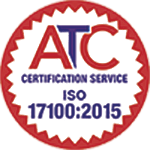Whether healthcare and the pharmaceuticals sector are managed as a business or a service, there are more risks and challenges in these areas than many others. There is far more at stake if something goes wrong in these two sectors. This means a strict code of conduct needs to be followed by all those involved in these two industries.
Code of Conduct in the Pharmaceutical’s Industry
To avoid the risk of facing a lawsuit, pharmaceutical operations need to ensure the following takes place:
● Suitable testing of products is undertaken before they are released into the public domain.
● The products are approved by the relevant body such as the Federal watchdog in the U.S., called the Food and Drug Administration (FDA).
● Proper labelling of dosages for drugs.
● Clear labelling of adverse effects of drugs.
It is a requirement in most countries that any products released for sale warn the purchasers of any potential risks of using the products. This is typically true for drugs as a life or death situation could develop if the user isn’t informed about how to use the product.
Communication in the Healthcare Sector
Why is it Important?
In most countries healthcare puts the patient first, so that means if anything goes wrong with treatment the patient can take action and be compensated if harmed in any way due to the quality of care received. This means it’s vital that any form of communication used is high quality and can’t be open to criticism. There is no room for errors in the healthcare sector.
Language barriers need to be overcome
Sometimes, it is difficult simplifying terminology when it is technical in nature as happens so frequently in the healthcare environment. Misleading a patient due to language obstacles is almost as bad as prescribing the wrong drug.
There was one well-known example in the United States where this happened. A patient was treated incorrectly for intoxication or drunkenness when in fact he was suffering from poisoning. Intoxication closely resembles the Spanish word intoxicado, meaning poisoning. This poor diagnosis and wrong treatment were down to misunderstanding words used in two languages that the relatives were using to convey the message of the treatment. The treatment given to the patient was incorrect and he suffered lifelong side-effects and for this confusion was awarded more than $70 million in compensation.
In the absence of an accurate translation, technical language was confused easily resulting in severe consequences for the patient.
Face to Face Communication can be Difficult in the Healthcare Sector
It’s not just technical language that can be a challenge in the healthcare and pharmaceutical environments, but simple day to day communication with patients represents a different type of challenge as well. This may involve emotive situations, especially if someone is told he or she is just about to lose a limb due to a devastating auto accident. It is difficult to explain in a clear, effective but sympathetic way to a patient who is already under stress.
Conclusion
It is important to be aware that both healthcare and pharmaceutical communications involve different forms of communication. The healthcare provider needs to be able to communicate in a clear, effective and truthful manner so no miscommunication or misunderstanding takes place.
Language barriers can compound the efforts of effective communication so it’s important in any healthcare environment to have interpreters and translators at hand to aid communication when it’s required. The two industries whether in the public or private sectors can’t afford miscommunication otherwise they would be out of pocket from lawsuits.



